Badfan v Superman: Top Ten Movie Myths, Part 1
E. Stephen Burnett: Greetings, superfans or would-be superfans.
Kerry Nietz, meet Austin Gunderson. Austin, meet Kerry.
Iâve spoken with you both separately about a conversation regarding Batman v Superman: Dawn of Justice, which we all enjoyed very much. Iâm calling this conversation âBadfan v Superman: Top Ten Movie Myths,â which we can turn into SpecFaith articles.
My thought is that we could trade responses in the next few days to ten movie myths Iâve written. Each of us could get one response each, length âreasonable,â e.g. a few paragraphs.
Be warned: todayâs and tomorrowâs discussions are heavy with story spoilers.
What do you think about these top ten myths about Batman v Superman: Dawn of Justice?
- BvS is horrible, grimdark, worst superhero story ever.
- BvS only wants to get some of that sweet Marvel moolah.
- BvS ought to be for General Audiences and have mass appeal.
- Superman is dull, not colorful, weak, mopey, unheroic, uninspiring.
- Batman has no reason to hate Superman and his story makes no sense.
- Lois Lane and other supporting heroes make stupid and senseless choices.
- Lex Luthor was ridiculous, over-acted, and had no motivation for his villainy.
- BvS jumps around, is too serious, doesnât follow Superhero Movie Rules, isnât predictable(?).
- Personalized attack: Director Zack Snyder sucks, hates Superman, makes pretty images with no weight.
- BvS has a stupid ending: bad resolution to the heroesâ fight, no fulfillment of themes, and doesnât finish the story.
Myth 1: BvS is horrible, grimdark, worst superhero story ever.
Kerry Nietz
 I think I speak for us all here when I say, that is not the case. Even reviewers like Harry Knowles has changed his tune now. (The Aint It Cool guy, Knowles initially panned the movie, but after a second showing, is now singing its praises.) As a fan who grew up with comicsâparticularly these two charactersâI loved the movie. For a comic reader, the hope from a comic book movie is to see glimpses of the stories youâve read an enjoyed presented in a such a way that it still feels unpredictable and fresh. I think BvS achieved that goal brilliantly. I can name at least three heavy nods to comic stories Iâve enjoyed in the movie.
I think I speak for us all here when I say, that is not the case. Even reviewers like Harry Knowles has changed his tune now. (The Aint It Cool guy, Knowles initially panned the movie, but after a second showing, is now singing its praises.) As a fan who grew up with comicsâparticularly these two charactersâI loved the movie. For a comic reader, the hope from a comic book movie is to see glimpses of the stories youâve read an enjoyed presented in a such a way that it still feels unpredictable and fresh. I think BvS achieved that goal brilliantly. I can name at least three heavy nods to comic stories Iâve enjoyed in the movie.
Austin Gunderson
I think anyone who calls this movie âgrimdarkâ probably doesnât know what the word means. Wikipedia defines it as describing a âtone, style, or settingâ that is âmarkedly dystopian or amoral, or particularly violent or realistic.â
Punisher 2: War Zone was plain-vanilla grimdark. Deadpool is satirical grimdark. But Batman v Superman? The theatrical version certainly isnât any more violent than your typical Marvel fareâless so, if anything, and with a violence thatâs only ârealisticâ inasmuch as itâs actually consequential. Itâs not like thereâs any blood and guts flying around, though there probably will be in the forthcoming rated-R version, much to my satisfaction.
âDystopianâ? Not sure how you could get that from this movie. If anything, the settingâs more reflective of contemporary society than that of any other superhero film Iâve seen (I donât place The Dark Knight Trilogy in the superhero genre). And if contemporary society, seen through this mirror, seems âdystopicâ … well, thatâs something you might wanna reflect on awhile.
âAmoralâ? Only if you think âmoralityâ means doing the right thing because of a genetic predisposition. Only if you think the right thingâs always obvious, and that good intentions never have bad results. Batman v Superman dares to go where few superhero films have ever gone before: into a moral universe so similar to our own that even the good guys sometimes get it wrong. And only when the right choice isnât blindingly obvious can a film such as this provide a meaningful commentary on the world.
E. Stephen Burnett
Austin has that knack for making me want to see the film all over again. Which my wife and I plan to do, on Saturday. By the way, Austin and I actually got to see the film together for a SpecFaith Mini Moot!
The film is not only not horrible or âworst superhero story everâ but a fascinating exploration of its own overlooked premise:
What if truly good heroes, such as Superman and Batman, existed in a place very much like our world?
And secondly:
What if fantastical places and things such as the planet Krypton, aliens, portals, a lurking tyrant and his slave planet, truly were out there?
This premise is key. You must see it before you try to enjoy these stories and invest in them. As we discuss below, the story is not meant to be as easily accessible âpopcorn entertainment.â This may mess with people, perhaps including critics and fans who expect âentertaining fun superhero moviesâ and âserious and literary-equivalent engagement with themesâ to be separate.
Austin is right about the words âdarkâ or âgrimdark,â which are overused. (See also: âreboot,â often paired with âgritty.â) The term âdarkâ may apply if you are making as your starting point that other shared superhero film universeâand assuming that franchise is only ever âlight and fluffyâ and assuming the two franchises can only ever Battle to the Death for Box Office Supremacy. But I challenge these assumptions. A different palette does not mean âdark.â
Instead of comparing BvS to other movies, or raising other questions, ask yourself: If these superpowered heroes were real men (and now women, hurrah!), and if they existed in the real world, could the results be something like this? If notâif you are effectively refusing to accept this version of reality as realisticâthen we likely disagree on what the real world is like.
There is a time for stories to show a âsuperpoweredâ world, already generally decent and happy and bright, around our heroes. Marvel and parts of the DC television universe (âThe Flashâ and âSupergirlâ) do this well. But the DC film universe is taking a different route: âLetâs take these heroes and put them in a real-world equivalent. Letâs challenge them. Letâs attempt to add weight and significance to every disaster, death, and choice. What would happen?â
Answer: True heroes would fight to stay good. But they would struggle. And the dark worldâvery much like the real world, folks, itâs in the Bibleâwould make them struggle. As Superman laments, âNo one stays good in this world.â But then, thank God, even in the midst of attacks and true suffering, he does.
Myth 2: BvS only wants to get some of that sweet Marvel moolah.
Kerry Nietz
Generally, movie studios set out to make money from movies, yes. Thatâs how they then make more movies, and pay people. Thereâs no crime in that.
But if DC was only looking to grab cash, then why make a movie so different then the typical Marvel fare? Why not take the best of the Marvel film catalog and match it beat for beat?
No, I think BvS proves that DC is willing to take risks. And I applaud them for it.
Austin Gunderson
I concur with Kerry. If DC were aping Marvel, the DCEU would seem derivative. Instead, thereâs a marked distinction: Marvel films are âfunâ (though Captain America: Civil War looks like it wants to be taken more seriously), while DC films are âseriousâ (though the filmmakers have said Justice League will have a lighter tone than its predecessors).
Yes, Marvel broke the connected-cinematic-universe ground first, but DC appears to have identified whatâs missing from Marvelâs visionânamely, a sober examination of both the social implications of superheroes and the physical consequences of their battlesâand distinguished itself beautifully.
E. Stephen Burnett
Indeed. Profit motive is not evil, and neither are stories for mass audiences. Weâre seeing some (not all) criticism of the movie result from overall displeasure with the superhero movie âtakeover.â Marvel got past their filters because it was first, early, and benefited from the Cool Factor of Robert Downey, Jr. But even its goodwill is starting to slip (as Avengers: Age of Ultron negative reviews showâand some of the nitpicks were plain old silly).
But a very decent chap accidentally set up the dichotomy when he asked me whether BvS would suffice to take on Marvel. Instead I had to take on that premise: I said I didnât care to see these two heroic story-worlds duke it out. I want them to be reluctant partners in super-storytelling. I reject a forced competition.
All three of us understand what DC is trying to do differently, intentionally and to its detriment with some critics and even fans. Both films are challenging both groupsâi.e. the critics who insist superhero movies be only one sort of âfun,â and fanboys who find the stories going in different directions. I thought we were supposed to like challenging, unpredictable, original stories … ?
Myth 3: BvS ought to be for General Audiences and have mass appeal.
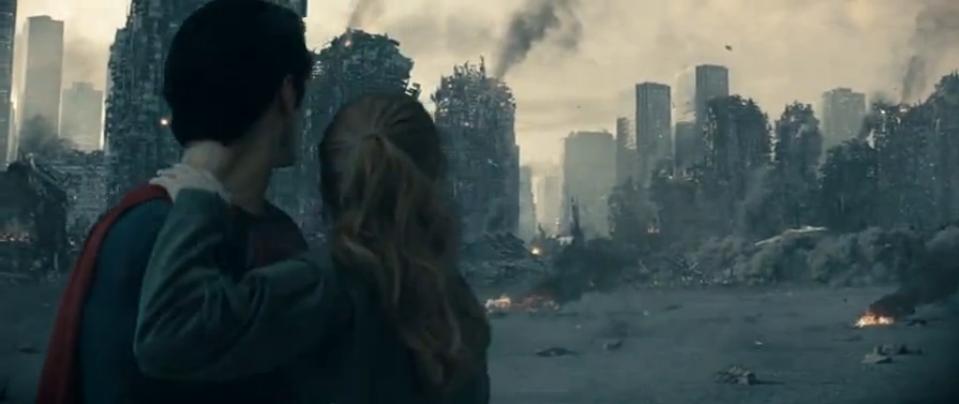
Man of Steel (2013) set the tone and started the themes continued in Batman v Superman: Dawn of Justice.
Kerry Nietz
Clearly it has mass appeal. The worldwide numbers were over 420 million in the first weekend. It simply wasnât made for all ages. Neither was Star Wars. And in the context of society where Deadpool, an R-rated superhero movie, is being lauded as the âbig thing,â a PG13 rating could be considered brave and more accessible.
Austin Gunderson
What Kerry said. Additionally, DC set clear tonal expectations for this film. BvS is a direct continuation of Man of Steel, both in plot and in tone. No one who saw the prior film, or who saw any of the marketing for this one, couldâve possibly been surprised at what they were then served up.
E. Stephen Burnett
Austin mentioned that people who saw Man of Steel should have known what to expect. One critic wrote a highly negative review of BvS and mostly faulted the film for not bringing resolution to its seemingly random religious themes and images. She did not seem to understand the film was middle portion of a continued story that began with Man of Steel. And when I asked, she said she had not even seen Man of Steel. No wonder she felt lost!
Following up on myth number 2, it seems clear DC is playing the long game. They want to appeal to audiences, but also challenge them. They want repeat viewings, pop-philosophy discussions, and âcasualâ fans transformed into the types of people who will web-search the name of a deleted-scene space critter like âSteppenwolf.â To borrow a now-famous phrase from another story-universe: Weâve just stepped into a bigger world. We just donât know it yet. But some viewers seem to think âgoodâ superhero movies donât do that. I find this notion hilarious. Weâve only had super-cinematic universes since 2008! The ârulesâ are only that new. Who decides what they are? Why not change them?
Myth 4: Superman is dull, not colorful, weak, mopey, unheroic, uninspiring âŠ
Austin Gunderson
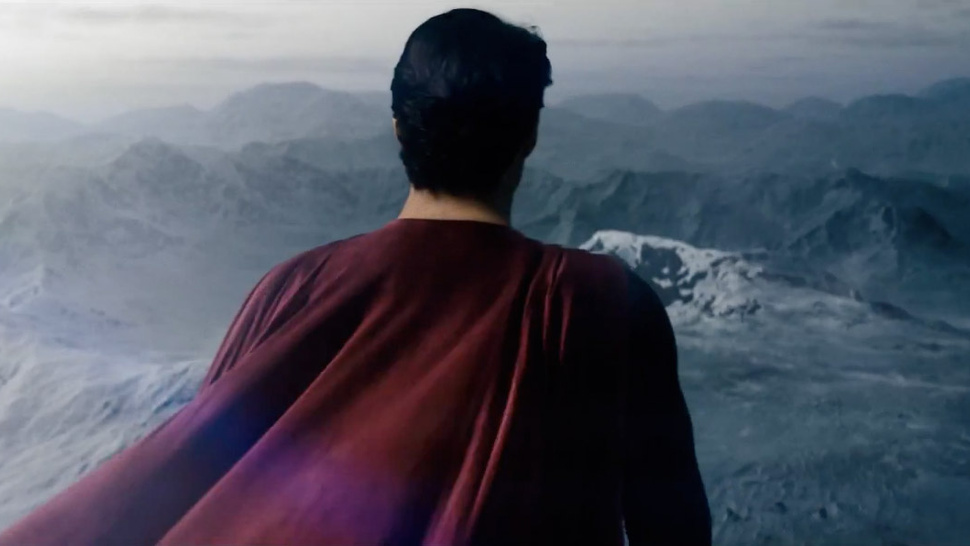 This criticism leapt off the page at me. The idea that Superman is unheroic or uninspiring in BvS strikes me as arising from a vision of heroism totally disconnected from reality.
This criticism leapt off the page at me. The idea that Superman is unheroic or uninspiring in BvS strikes me as arising from a vision of heroism totally disconnected from reality.
By this I donât intend to insinuate that Snyderâs Supes represents some kind of ârealisticâ hero who must be weighed down with character flaws for teh dramaz. What I mean is that Superman behaves like someone with a brain. When the common man loses faith in him, and the elites treat him like a liability, he quite understandably reevaluates his place in the world (remember: heâs not from this world!) and the benefits of his continued unilateral action. He sees the civic unrest, the opportunist terrorism, and the unintended consequences, and he thinks hmm, maybe it is me after all, just like all those armchair-quarterback movie critics were saying after Man of Steel.
And so Supes flirts with pacifism (which is the same thing, in effect, as ignoring all the problems and hoping they just go away, though pacifists have a cow whenever this gets pointed out). What brings him back around is his personal relationship with Lois Lane. And once heâs made his decision, once heâs recommitted himself to the cause, he puts the lie to Batmanâs assertion that only men are brave. He does this by following Batman into danger that actually imperils his life, and then sacrificing himself in order to save the ones he loves. Ironically, Supesâ self-sacrifice is the only proof that couldâve definitively exonerated him from charges of fascistic unaccountability in the eyes of his critics. Kinda like … Jesus.
There is no greater heroism. And because Supes had to âshow his workâ in reaching the point where he was willing to make that sacrifice, even for a planet thatâd scorned him, the sacrifice actually means something. Itâs not an âof courseâ gesture that we all expect and thus take for granted.
Kerry Nietz
I think Austin makes a great point here, and for anyone who paid close attention in the movie, the filmmakers give a nod to the inherent Easter message. There are crosses in the background of the pivotal scene! (And donât overlook the weekend it was released!)
I think the movie also touches on a weakness of Superman that makes him especially interesting. Yes, he has near godlike powers, but he isnât omnipresent. He canât be all places at all times and so must always make a choice of who to save. That is misery, and I donât know that a person could stay sane if they were in that position. Imagine the guilt!
E. Stephen Burnett
I join you two in heaving a sigh at these shallow criticisms. As I will argue at Christ and Pop Culture, I believe these notions are partly because Superman has been in pop culture for so long that people âknowâ just enough about him to be dangerous. Some treat him like little more than a drawing, a character, a Mickey Mouse-like figurehead. Does âheâ even act as a person in this version?
Sorry, folks, the âtraditionalâ Superman does not always behave the same way. Iâve done the research. Across decades of storylines he has inner struggles, uncertainties about how to use his gifts, and frighteningly scary villains to fight. Also: he is alien. Superman Returns is underappreciated but flawed partly because it forgot that fact and made Superman too human. But in MoS and BvS Superman is human in that he faces very human choices, familiar choices yet with fantastical causes. That is why he can, and should, be a fascinating character. He is paradoxical: Seemingly all-powerful, and yet his powers lead to so many resulting weaknesses, some almost spiritual.
The movie is asking the question: What if Superman were a real person, and a truly good person, in a world very much like our own and therefore prone to give him mixed-to-scathing reviews? Critics may disagree with that question, but they cannot therefore honestly insist the movie âhates Supermanâ or casts him as a dark hero. To walk out of the movie claiming, âSuperman should have smiled moreâ or âSuperman should have fun saving the worldâ is like walking out of The Dark Knight annoyed that Bruce didnât perform the Batusi.
Myth 5: Batman has no reason to hate Superman and his story makes no sense.
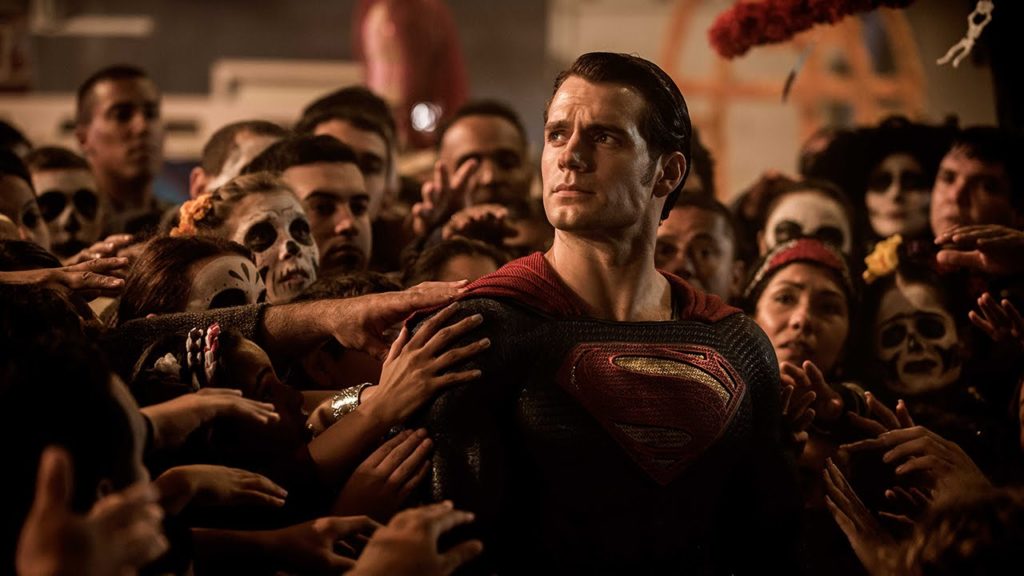
“False god”?
Austin Gunderson
Batmanâs suspicion of Superman stems from the same source cited by most of the critics of Man of Steel: the fact that Superman didnât instantly and magically triumph over General Zod. Of course, Bruce Wayne intellectually concedes that Supes probably meant well and did the best he could, but still, deep down, thatâs where the fear takes root.
I find it very sad that many of those who criticized Supesâ supposedly imperfect tactics in MoS, and have now gone on to criticize Batmanâs supposedly inadequate cause for enmity with Supes, arenât sufficiently self-aware to even notice the contradiction.
But itâs much more than mere resentment. Batmanâs entire life experience has, as he explains on several occasions throughout the film, lead him to mistrust the assurances of those in power that their own good intentions will keep them honest. Heâs seen abuse after abuse, betrayal after betrayal, and now a supernaturally-powerful alien has come to Earth in a whirlwind of apocalyptic carnage and Batmanâs expected to just trust his word that he wonât become corrupt?
I see people talking about how, in the movie, Batmanâs become unhinged. Frankly, if you close one eye and imagine for just one second that Metropolis and Gotham exist in the real world, Batman would be unhinged not to take action against Supes. An all-powerful individual, without oversight or jurisdictional parameters, assigning to himself the authority to police the world? In the short term, thatâs a direct threat to national sovereignty. In the long term, itâs likely to result in a global autocracy. Batman may be a vigilante, but he basically just preps criminals for the cops. Would Superman do no more than that? Would anyone be able to stop him if he decided that wasnât enough?
Batman knows that he can stop the Superman. Which is the same thing as a moral imperative to at least give it a try.
E. Stephen Burnett
This from Austin:
I find it very sad that many of those who criticized Supesâ supposedly imperfect tactics in MoS, and have now gone on to criticize Batmanâs supposedly inadequate cause for enmity with Supes, arenât sufficiently self-aware to even notice the contradiction.
Yes, this. Tweet it, repeat it.
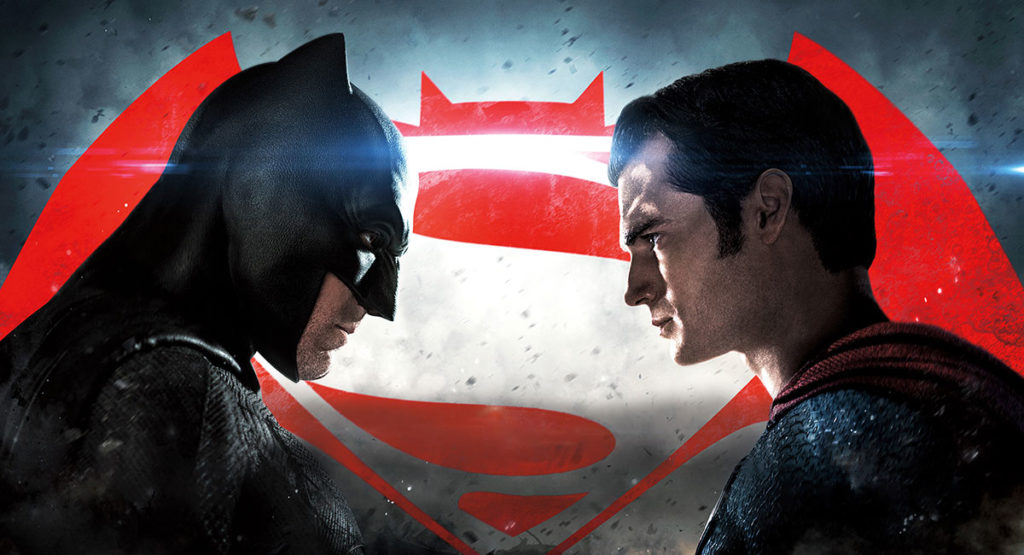 Equally odd is that people who thought Superman near-villainous at the end of Man of Steel seemed uninterested in following up when the sequel story took this accusation seriously and (as was already the storytellersâ plans) began to integrate it into the next story. (Again: This is a continuous, serialized story, in which part 1 truly affects part 2 and beyond.)
Equally odd is that people who thought Superman near-villainous at the end of Man of Steel seemed uninterested in following up when the sequel story took this accusation seriously and (as was already the storytellersâ plans) began to integrate it into the next story. (Again: This is a continuous, serialized story, in which part 1 truly affects part 2 and beyond.)
The film goes âmetaâ about not only people but themes: People in this world are asking, âIs Superman a good hero?â just as we did after Man of Steel. This does not âsubvertâ genre tropes. Itâs an attempted honest reflection of the real world.
Audiences who lean forward in their chairs will more likely understand Batman and his motives. They will fully understand where heâs coming from, and yet by the end will find themselves (as Bruce does) challenged to think differently about Superman.
Significant spoiler below:
By the end Bruce has concluded, âMen are still good.â His redemption as a hero is underway, and that means, yes, this midpoint story-in-story does find clear resolution. So if someone insists the story is too âdarkâ or âgritty,â theyâre not paying attention!
Kerry Nietz
Yes, I think the fact that Snyder chose to address the âcollateral damageâ criticism from MoS in BvS took a lot of guts. Artists are typically taught to ignore criticism and follow their own creative impulsesâfollow your heart!âbut here Snyder not only addressed the criticism, he embraced it. Like he said âYes, youâre right, there was a lot of damage and potential casualties ⊠so what would the fallout of that be?â
(Coincidentally, Marvel is clearly doing this in Captain America: Civil War, as well. This is generally unheard of in comicdom. Death and destruction happen in one issue, and the next issue everything is generally back as it was.)
So, BvS illustrates the fallout, and Batmanâs attitude is part of it. Bravo!

































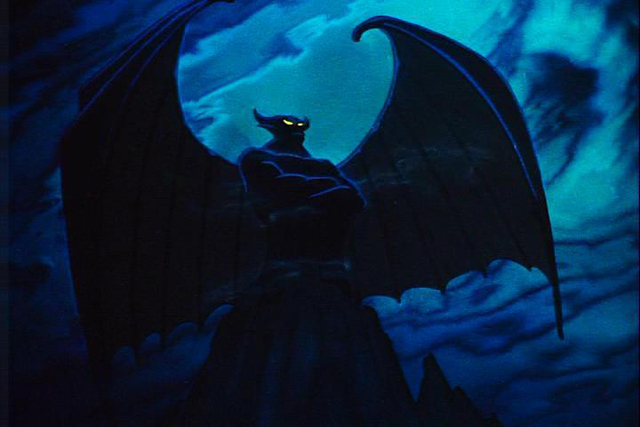
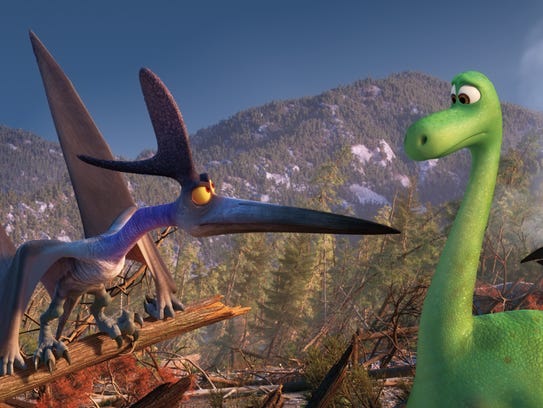 Last December I saw The Good Dinosaur in theater. In one moment I will never forget, a pterodactyl rescued a âcritterâ trapped beneath a log by a fierce storm. Now, you cannot appreciate the full impact of this moment until you appreciate that this critter was a baby fox, as adorable as only a Disney sense of animal cuteness and a Pixar skill in animation could make it. After pulling this little fox out of the wreckage of the storm, the pterodactyl â this is the unforgettable part â ate him. The audienceâs eyes bulged, cartoon-like, at the shock of instant furry death. Pixar, I didnât know you had it in you!
Last December I saw The Good Dinosaur in theater. In one moment I will never forget, a pterodactyl rescued a âcritterâ trapped beneath a log by a fierce storm. Now, you cannot appreciate the full impact of this moment until you appreciate that this critter was a baby fox, as adorable as only a Disney sense of animal cuteness and a Pixar skill in animation could make it. After pulling this little fox out of the wreckage of the storm, the pterodactyl â this is the unforgettable part â ate him. The audienceâs eyes bulged, cartoon-like, at the shock of instant furry death. Pixar, I didnât know you had it in you! dinosaurs eating each other, or attempting to, before fading away in a torturous, water-starved trek. If your child has failed to realize the essential cruelty of the survival of the fittest, Disney can correct that. At least half of the final act of Fantasia is devoted to a devil-figure that summons dancing ghosts and skeletons. I would have thought that this, the most macabre imagery in any animated Disney film, would have achieved a little fame, but it hasnât. Not enough people noticed. (Perhaps they were turning off the movie at the dancing hippos.)
dinosaurs eating each other, or attempting to, before fading away in a torturous, water-starved trek. If your child has failed to realize the essential cruelty of the survival of the fittest, Disney can correct that. At least half of the final act of Fantasia is devoted to a devil-figure that summons dancing ghosts and skeletons. I would have thought that this, the most macabre imagery in any animated Disney film, would have achieved a little fame, but it hasnât. Not enough people noticed. (Perhaps they were turning off the movie at the dancing hippos.)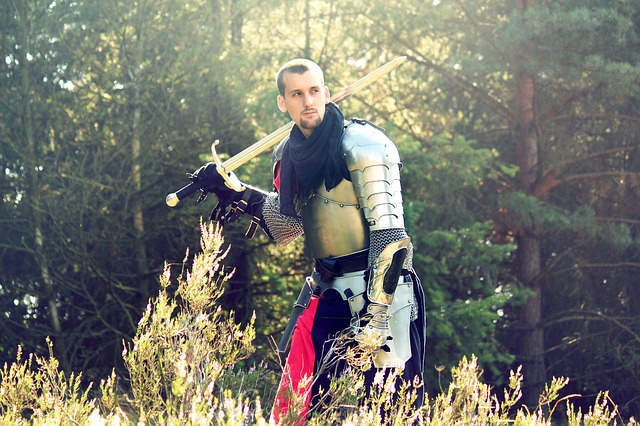
 Weâve all heard the line, âI was only trying to protect you,â mainly used by a various assortment of heroes (aka ALL-OF-THEM) when explaining why they kept their identity a secret from their closest friends and family.
Weâve all heard the line, âI was only trying to protect you,â mainly used by a various assortment of heroes (aka ALL-OF-THEM) when explaining why they kept their identity a secret from their closest friends and family. The question becomes, âIs it always the best decision to protect people, no matter the cost? Where do we draw the line?â
The question becomes, âIs it always the best decision to protect people, no matter the cost? Where do we draw the line?â
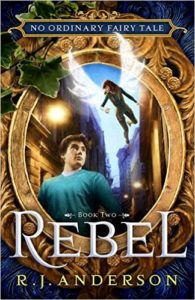
 Author Bio
Author Bio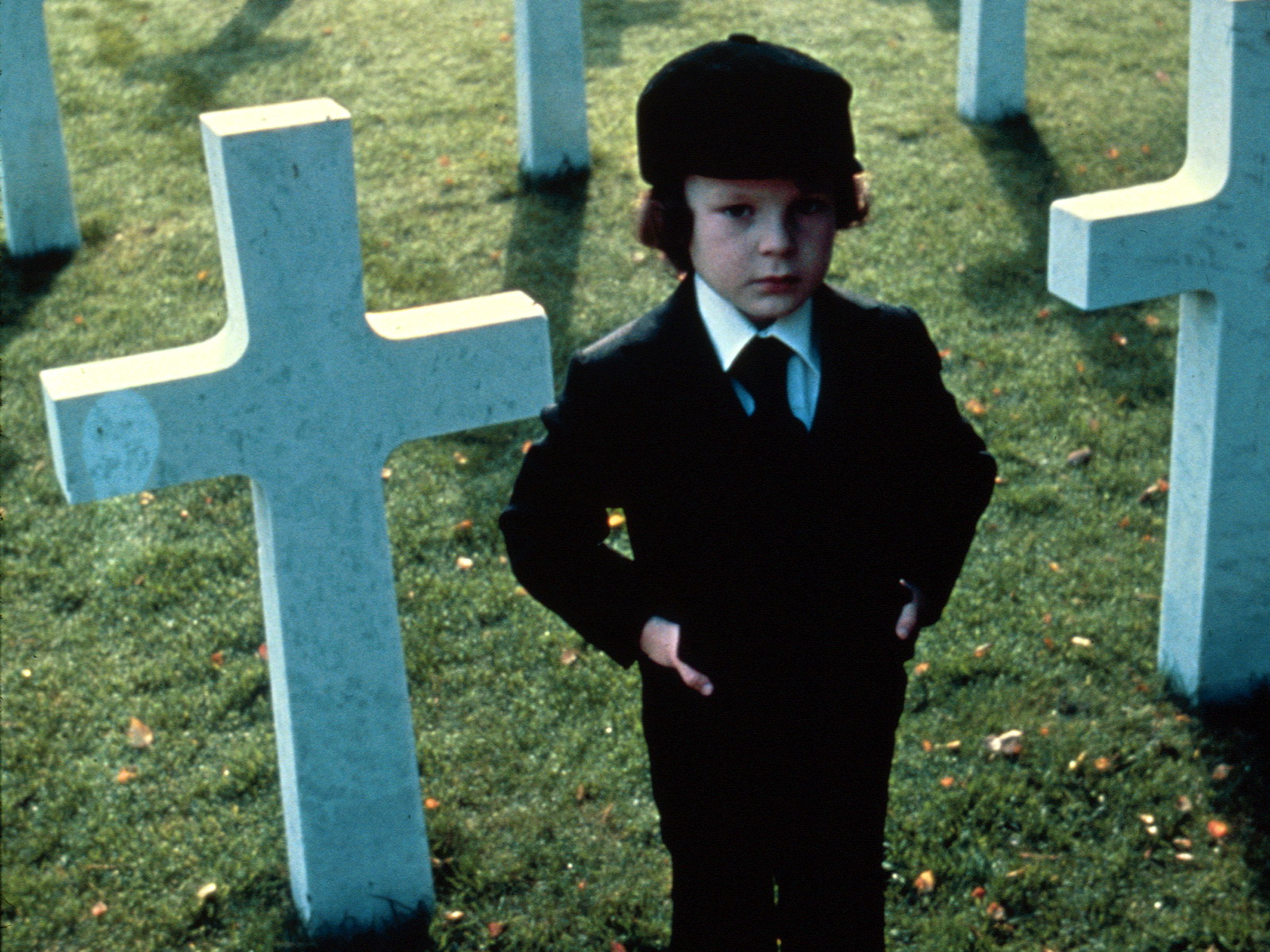
 I’ve recently begun watching a new show called Damien on A&E. As you can probably guess, it is based on The Omen series of movies that began in the 70s (forget about the toothless recent remake). I’ve only watched the first movie, which has become an occult horror classic. If you are unfamiliar with the story, it centers around a young boy named Damien who may or may not be destined to become the Anti-Christ. He seems innocent enough, playing with his toys and tricycle, but people start dying around him in terrible ways, and forces of light and darkness converge around him, hoping to pull him to their side. All the while, his distraught father wrestles with the horrific possibility that his own son might grow up to be the most heinous villain in human history as tragedies unfold around him. It is a very suspenseful and chilling film (and also features the most most awesomely cheesy decapitation scene ever shown on screen) that is definitely worth watching. I watched it and several similar films when I was doing research for my first book, The Age of Apollyon.
I’ve recently begun watching a new show called Damien on A&E. As you can probably guess, it is based on The Omen series of movies that began in the 70s (forget about the toothless recent remake). I’ve only watched the first movie, which has become an occult horror classic. If you are unfamiliar with the story, it centers around a young boy named Damien who may or may not be destined to become the Anti-Christ. He seems innocent enough, playing with his toys and tricycle, but people start dying around him in terrible ways, and forces of light and darkness converge around him, hoping to pull him to their side. All the while, his distraught father wrestles with the horrific possibility that his own son might grow up to be the most heinous villain in human history as tragedies unfold around him. It is a very suspenseful and chilling film (and also features the most most awesomely cheesy decapitation scene ever shown on screen) that is definitely worth watching. I watched it and several similar films when I was doing research for my first book, The Age of Apollyon.
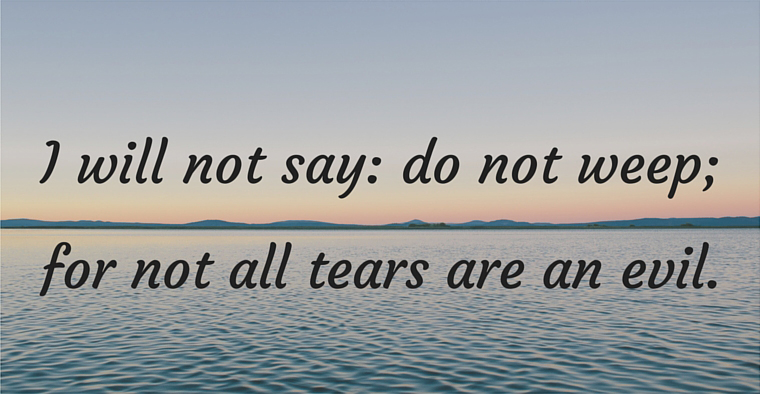
 Thatâs right. Twenty Lord of the Rings quotes suitable for that moment when you desperately need something to say, whether clever, profound, or straightforward.
Thatâs right. Twenty Lord of the Rings quotes suitable for that moment when you desperately need something to say, whether clever, profound, or straightforward.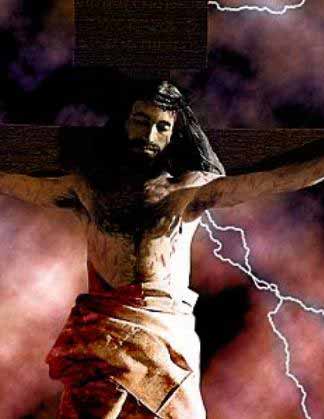
 What superhero dies?
What superhero dies?  Jesus, in so many ways, has the qualities which resonate with our culture. In
Jesus, in so many ways, has the qualities which resonate with our culture. In 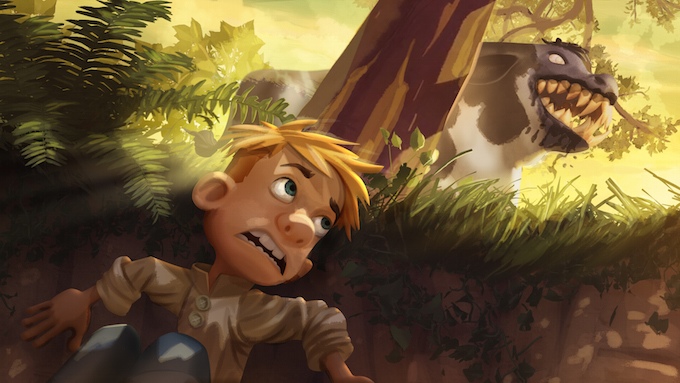
 Is it just me, or are you sensing a theme here, too?
Is it just me, or are you sensing a theme here, too?
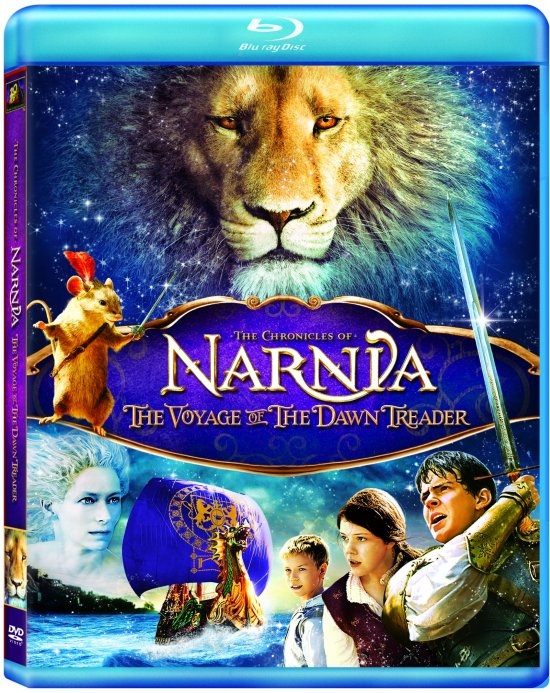
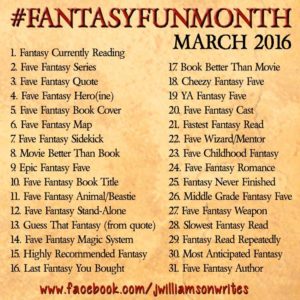 Fantasy Fun Month sneaked up on me.
Fantasy Fun Month sneaked up on me.

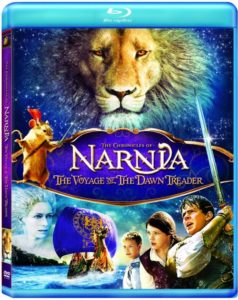
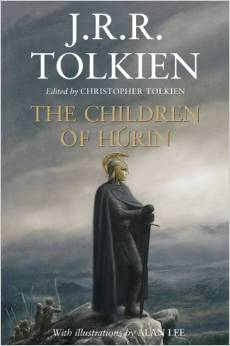
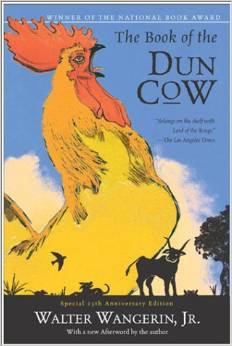 Donât let the cover and title fool you.
Donât let the cover and title fool you. This standalone book takes place as part of the Middle-earth saga. A story plucked from the vast history Tolkien created. If youâre a Lord of the Rings fan, chances are youâve read this. Consider this a public service announcement for the uninformed masses.
This standalone book takes place as part of the Middle-earth saga. A story plucked from the vast history Tolkien created. If youâre a Lord of the Rings fan, chances are youâve read this. Consider this a public service announcement for the uninformed masses.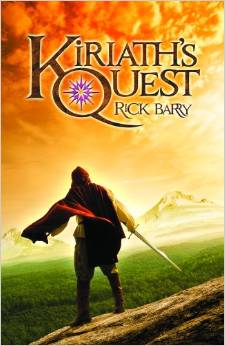 This was one of the first fantasy books I readâother than the Chronicles of Narniaâand I thoroughly enjoyed it. As a standalone novel, it doesnât have the sweeping, epic saga feel that other fantasy books do, and thatâs one of its charms.
This was one of the first fantasy books I readâother than the Chronicles of Narniaâand I thoroughly enjoyed it. As a standalone novel, it doesnât have the sweeping, epic saga feel that other fantasy books do, and thatâs one of its charms.

